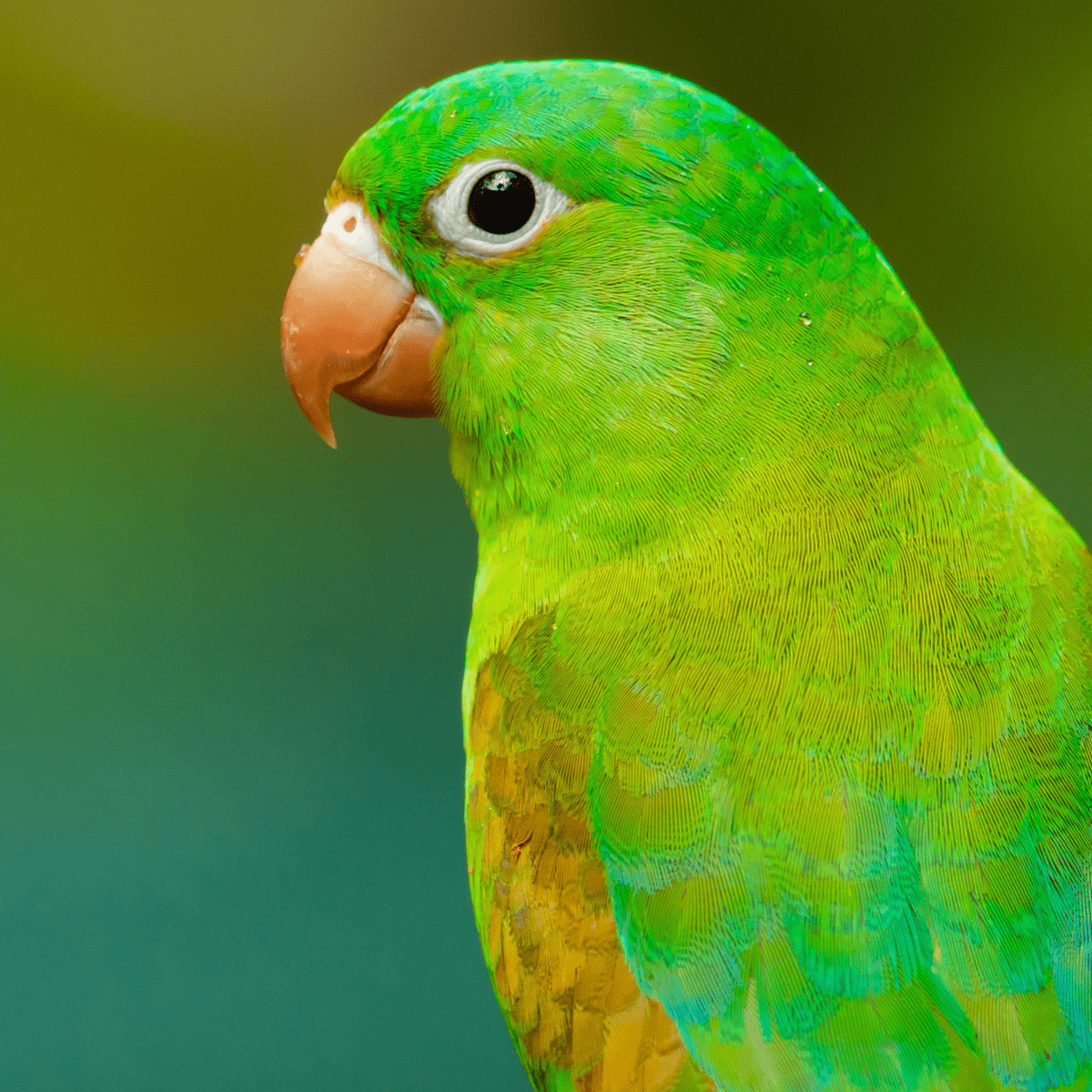Blueberries and Cockatiels
Owners of these feathery pals often find themselves pondering, “Can cockatiels munch on blueberries?” Well, here’s the scoop: blueberries can be a fab addition to a cockatiel’s menu, but, as with all good things, moderation is the key.
Nutritional Benefits of Blueberries
Yes, blueberries are safe for your pet birds when shared in bite-sized amounts and are one of the tastiest fruits you can offer. They make a sweet, crispy snack loaded with vital vitamins, minerals, and antioxidants—the stuff they need without packing on the pounds.
| Nutrient | Whatcha Get |
|---|---|
| Vitamins C and K | Immune system support |
| Minerals | Boost in health |
| Antioxidants | Protection against cell damage |
| Low in Calories | Helps keep that waistline in check |
Nutrients from these little blue gems aid a cockatiel’s well-being. Think of it as nature’s way of helping your bird stay zippy and fend off those nasty bugs.
Feathers and Immune System
Oh, those feathers! Keeping a cockatiel’s plumage shiny and vibrant is a top priority for any bird lover. Blueberries lend a hand by reducing oxidative stress, giving the feathers some much-needed TLC.
Why do Vitamins C and K matter? Vitamin C is like a shield, helping to ease inflammation and backing up the immune system. Meanwhile, Vitamin K helps keep those blood clots in check and bones strong—perfect for a bird on the go.
Fitting these fruits into a balanced diet should cover no more than 10% of the bird’s grub to keep everything balanced. Even though they’re packed with goodies, too much can throw things out of whack.
Looking to broaden your feathered friend’s taste pallet? Pop over to our chatter on cockatiel favorite food. And if you’re all about variety, peep our insights on keeping a colorful cockatiel diet.
Adding blueberries not only ups your bird’s feather game but also helps keeps them chirpy and full of life. For those nagging questions on what’s safe to nibble on, take a gander at our safe foods for cockatiels section.
Cockatiel Diet Guidelines
Feeding your cockatiel the right stuff is key to their health and happiness. Here’s what you gotta know to keep your feathered friend munchin’ right.
Mix It Up
Changing up what a cockatiel eats is like giving them a buffet every day. They won’t be bored, and they’ll get all the good nutrients they need. You’ve got seeds, fruits, veggies, nuts, and protein in the lineup. Sure, pellets are okay, but they’re kinda like plain oatmeal every morning—you need to spice it up a bit (PangoVet).
Cockatiels are big fans of variety in their diet:
- Seeds: Grab a mix that’s made just for them.
- Fruits: Apples, mangoes, papayas, bananas, and the like are hits. But watch out—fruit seeds can be harmful (looking at you, apple seeds) (Petcover Group).
- Veggies: Carrots and leafy greens (skip the iceberg lettuce) are superstars. Rinse them well to wash off any yucky stuff.
- Nuts: A few here and there for those healthy fats.
- Protein: Cooked eggs or small bits of lean meat do the trick.
Fruity Feast
Fruit’s got the vitamins that keep your cockatiel’s feathers looking fab and their immune system in tip-top shape. Check out this handy chart for the skinny on what’s inside your cockatiel’s favorite fruits:
| Fruit | Vitamin C (mg) | Fiber (g) | Sugar (g) |
|---|---|---|---|
| Blueberries | 9.7 | 2.4 | 10 |
| Apple | 14 | 4 | 19 |
| Mango | 36.4 | 3 | 14 |
| Papaya | 60.9 | 3.1 | 5.9 |
| Banana | 8.7 | 3.1 | 14.4 |
Info courtesy of Petcover Group.
Slice those fruits into tiny pieces, so your bird doesn’t struggle. And steer clear of any fruits with toxic seeds or pits unless you’ve removed them, like apples and cherries.
By keeping their food stash varied, your cockatiel will be living their best life, staying healthy and excited at mealtime. Dive into more juicy bird diet details—peek at our articles on cockatiel favorite food or can cockatiels eat carrots.
Safe Foods for Cockatiels
Feeding your cockatiel the right stuff is as important as trying to figure out whether it’s rooting for the favorite sports team or just mocking your choice in shows. Let’s talk about what’s on the menu for these feathered friends, focusing on blueberries and seeds, and what culinary missteps to avoid.
Blueberries and Other Seeds
Blueberries aren’t just good for your breakfast bowl; they’re a perfect treat for your fluttery pal. These little blue gems are super safe for cockatiels and are like a tiny cocktail of good-for-you things like vitamins and antioxidants (PangoVet). They keep those shiny feathers in check and boost immunity. Just don’t let them binge eat; moderation is key!
| Nutrient | Amount in Blueberries (per 100g) |
|---|---|
| Calories | 57 |
| Vitamin C | 9.7 mg |
| Vitamin K | 19.3 mcg |
| Fiber | 2.4 g |
| Antioxidants | High Content |
Good news for the seed freaks: blueberry seeds are completely safe. Other bird-approved seeds come from grapes, raspberries, pomegranates, and even squash. Just make sure they’re clean and not carrying anything nasty.
Internal Links
- See what’s on their favorite snack list
- Get the scoop on cockatiel growth peeks
- Let’s ponder if our birds are carrot fans?
Foods to Avoid
Not all fruits are a safe bet. Anything with seeds or pits like apples, cherries, and peaches might have a sneaky poison that’s downright dangerous. It’s as harmful as giving them a lifetime supply of bad TV reruns.
- Apples
- Cherries
- Peaches
Now, onions and garlic might add zing to your pasta, but for birds, they’re troublemakers. They can cause serious issues like irritation and anemia (ZuPreem). Instead, why not spice things up with a touch of vitamin A-rich hot pepper?
| Food | Reason to Avoid |
|---|---|
| Apple Seeds | Toxic cyanide compounds |
| Cherry Pits | Toxic cyanide compounds |
| Peach Pits | Toxic cyanide compounds |
| Onions | Irritate bird’s digestive system |
| Garlic | Causes ulcers and anemia |
So, to keep your cockatiel chirping and perky, make sure you’re dishing out the right diet. For more on feeding your feathered buddy, tap into our page on fruity feasts and more.
Feeding Recommendations
Looking after your cockatiel isn’t just about cage space and playtime; it’s also about making sure they’ve got the grub they need to chirp happily and stay bouncy. Core advice for keeping your feathered buddy in tip-top shape includes handing out fresh water every day and taking your time when introducing new treats.
Water and Daily Care
Your cockatiel needs a fresh splash of water pretty much around the clock. We don’t want any murky water situations—it can turn into a festive ground for some nasty germs, especially if your bird decides to toss in some of their grub (like offering a bonus snack to their water) (Petcover Group). Swap out that water daily and scrub the dishes clean as a whistle. Sparkling water equals a healthy, happy bird with zero tolerance for dehydration.
Placing two or more water bowls in their space keeps them hydrated and interested. On those hot days, keep an eye out because they might guzzle a bit more than usual.
Introducing New Foods
Slow and steady does it when you’re switching up your cockatiel’s food game. Providing a smorgasbord of options every day keeps things exciting and balanced, nutrition-wise (NPVet). Here’s the insider’s guide to bringing new foods into your cockatiel’s world:
- Start Slow: Toss in just a sprinkle of the new stuff with their usual picks.
- Watch Closely: Keep an eagle eye for any weird reactions or squirms—just in case. If they turn up their beak initially, give it another whirl or two; tastes evolve, just like us!
- Keep It Regular: Make these new food offerings a consistent event. Lean meats, a nibble of cheese, or a slice of egg can be a nice treat now and then.
Remember, not every human snack is bird-friendly. Ditch the chocolate, caffeine, booze, and anything that screams ‘junk.’ For a detailed dossier on what’s in and what’s out, check our piece on cockatiel favorite food.
Feeding them fruits like blueberries should be a now-and-then affair, thanks to their health perks. Dive into our breakdown of can cockatiels eat blueberries for an eye-opener on fruity fun.
By rolling with these laid-back guidelines, your cockatiel can munch happily and healthily. Always shoot questions to a vet for any special needs—like if you’ve got young birds, stressed buddies, or those dealing with aches or the demands of raising chicks.

